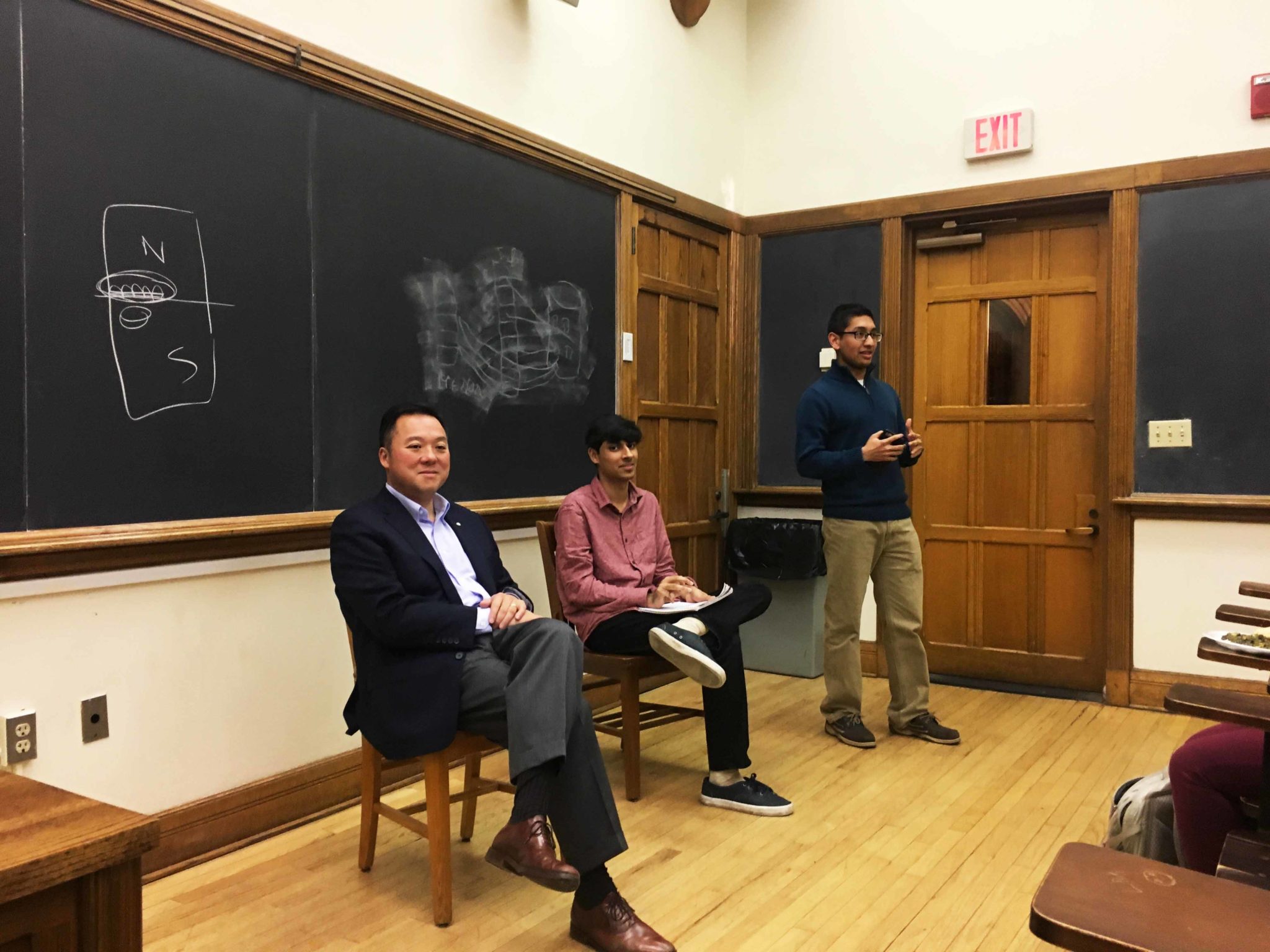
State attorney-general hopeful William Tong knows the Elm City’s votes are a must for Democrats running for office in Connecticut. With elections less than two weeks away, Tong honed in on the Yale vote by speaking candidly with Yalies at an intimate Thursday event hosted by the Yale Undergraduate Legal Aid Association, known by its acronym YULAA.
Tong, a state representative and the Democratic nominee for Connecticut’s top civil law enforcement position, spoke earnestly with a small group of students in William L. Harkness Hall. As midterm elections near, Tong opened with an appeal to Yale’s voters — telling attendees about his own background and political career. He then delved into a discussion about the race, his plans for the position and an interpretation of the legal field’s current atmopshere, before ending with another appeal to vote.
“Unless you all turn out and vote, we’re not going to win,” Tong told attendees. “That’s true in cities across the country because Democrats stand for, in general, fairness and equity and social change. Fairness and equity and social change matter most in cities … New Haven is an incredibly important part of that equation.”
In a moderated discussion between Tong and Akhil Rajan ’21, a member of the board of YULAA and Dwight Hall, Tong spoke frankly about the lack of diversity and representation he experienced as the son of immigrants living in Connecticut. Although the landscape has changed since his childhood, he highlighted the importance of continuing to push for progress.
Describing himself as one of very few Asian-Americans in his immediate community, Tong explained that he grew up helping out in the kitchen of his parents’ Chinese restaurant. He later attended the Massachusetts boarding school Phillips Academy, Brown University and the University of Chicago Law School.
“I was surprised by how personal [Tong] was,” attendee and YULAA member Nathalie Beauchamps ’21 said. “It was really well-balanced with personal commentary and political stances.”
Tong has made history in his political career. He was the first Asian-American to be elected to a state-level position in Connecticut’s history. If elected, he will become only the nation’s second Asian-American Attorney General, following in the footsteps of former California Attorney General U.S. Sen. Kamala Harris, D-Calif. — who is of Indian and Jamaican descent.
Tong said he was drawn to the legal field by its capacity to make change. Though he stressed that the law is not the most rapid form of progress-making, he noted that it is oftentimes the most structured and accessible. If elected attorney general, Tong said he hopes to represent and extend the state’s progressive political track record under incumbent Attorney General George Jepsen, who has served in the role since 2010 and did not seek re-election this year.
“It can be easy to lose confidence in the legal system as an effective mechanism for progress,” Rajan and YULAA co-president Hala El Solh ’20 said in a statement to the news. “But as William Tong demonstrated, the law may not be the quickest mode of social change, but in the long run it is our best route to create a more just world.”
Many liberal state attorneys general throughout the country have recently engaged in the fight to preserve former-President Barack Obama’s signature health care legislation, the Affordable Care Act. Tong identifies that battle as a key one for Connecticut, given its wide scope of impact on Connecticut residents.
Tong also highlighted his hope of holding the petroleum industry accountable for damage to the environment and climate change. Although he admitted that it was a steep challenge, he cited Connecticut’s prior history of challenging the powerful tobacco industry as proof that the state is up for the fight.
Tong told attendees that “the next frontier for us is to join Rhode Island in suing Big Oil for climate change.” He noted that Rhode Island’s pioneering attempt to challenge the petroleum industry is rooted in an argument credited to former Yale Law School professor and former Law School dean Harold Koh, who also served as the State Department’s Legal Adviser under former Secretary of State Hillary Clinton LAW ’73.
Among other issues on the ballot this year, Tong said, are the battles for consumer protections and gun control, a particularly painful subject for a state that is still reeling from a shooting at Sandy Hook Elementary School in 2012. Given the fraught atmosphere of national politics, and the appointment of Brett Kavanaugh ’87 LAW ’90 to the Supreme Court after sexual assault allegations and a partisan showdown, Tong stressed the importance of writing and enforcing just laws at a local level and challenging unjust federal decisions using state litigation.
Tong won the three-way Democratic primary with 57.8 percent of the vote and faces Republican state attorney Susan Hatfield in the general election. Residents of Connecticut will go to the polls to vote on a plethora of state-level positions on Nov. 6.
Angela Xiao | angela.xiao@yale.edu







